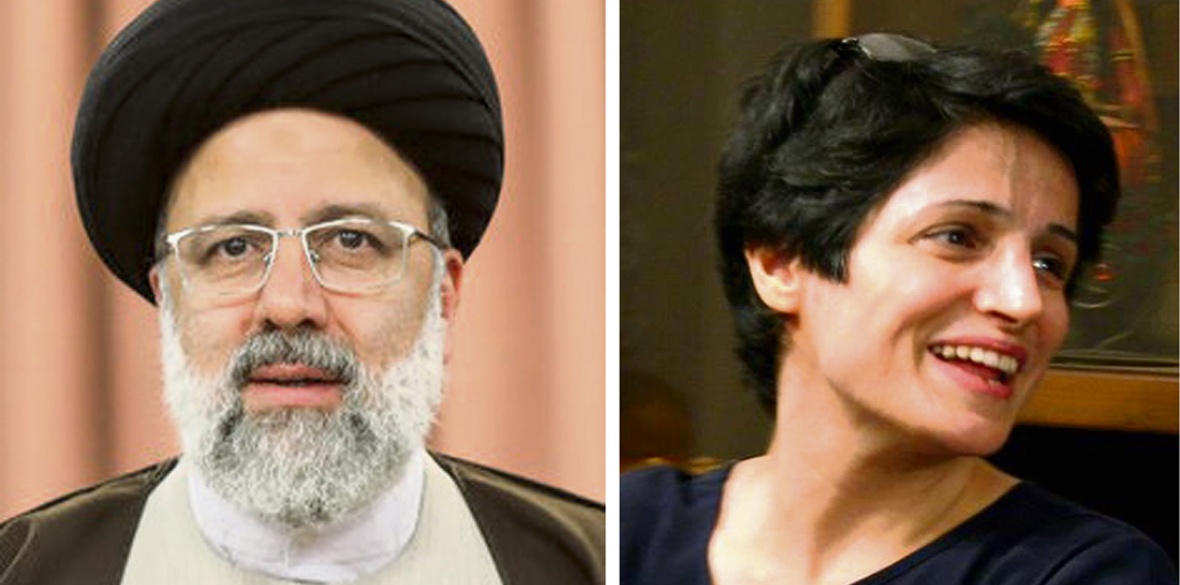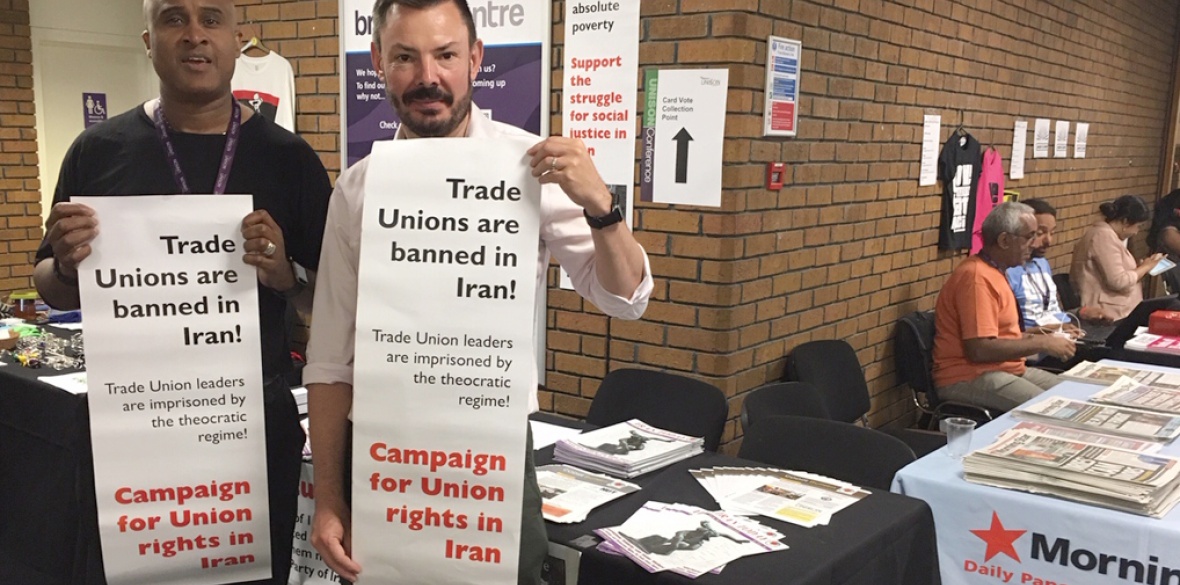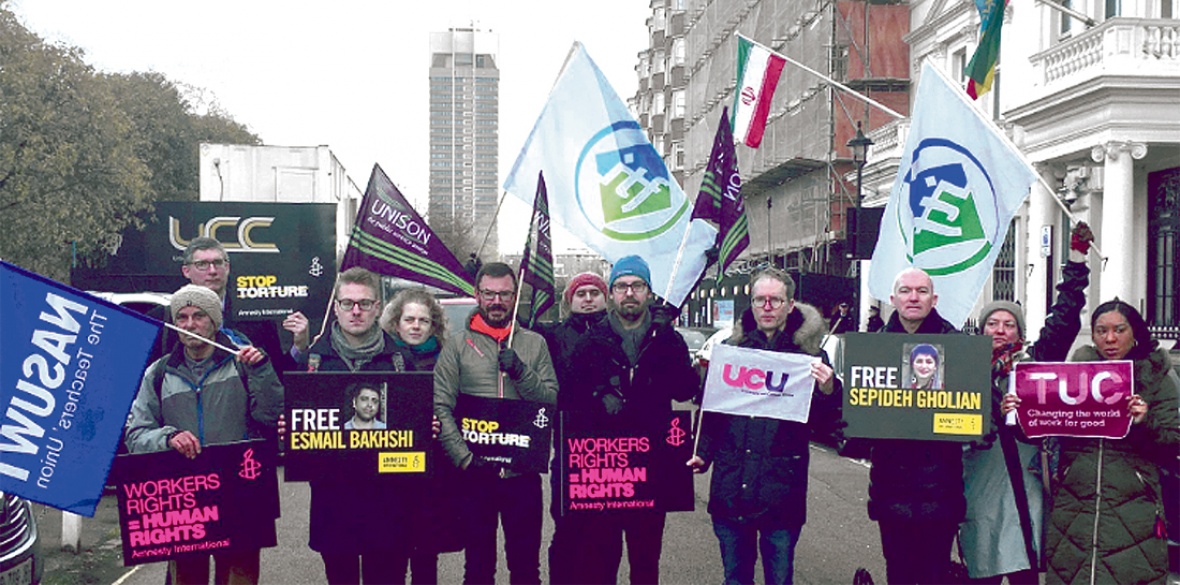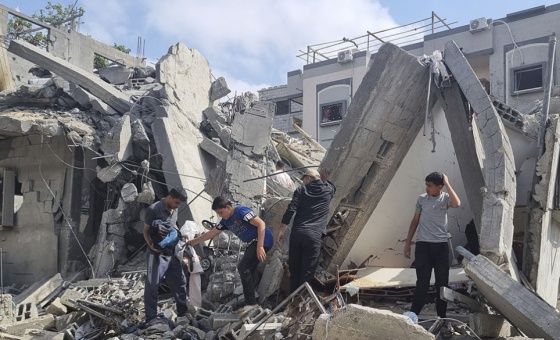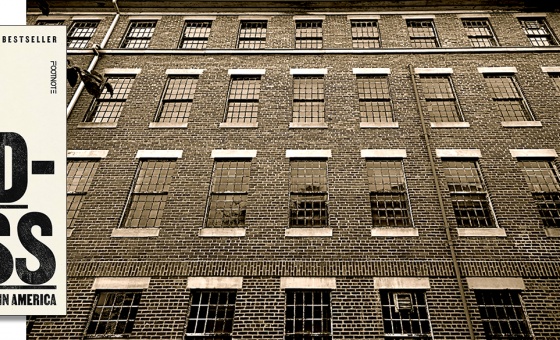This is the last article you can read this month
You can read more article this month
You can read more articles this month
Sorry your limit is up for this month
Reset on:
Please help support the Morning Star by subscribing here
THE resignation of Iranian Foreign Minister Mohammad Javad Zarif three weeks ago has once again highlighted the tensions within the ruling clergy in Iran.
Hard-line clerics have never been happy with President Hassan Rouhani or with Zarif as foreign minister, the latter having been the architect of the nuclear deal with the United States, China and the EU in 2015.
President Rouhani did not accept his tried and tested Foreign Minister’s resignation as he is well aware that the theocratic regime still needs to deploy the skills of Zarif in the difficult negotiations with the EU to secure sanctions relief.
The US-educated Zarif played a key role in overcoming hard-line objections to strike the nuclear accord which resulted in Iran limiting its enrichment of uranium in exchange for the lifting of economic sanctions. The deal has since been reneged upon by Donald Trump last May, evidence, according to hardliners in Iran, that the West cannot be trusted.
Political infighting is said to have intensified inside the ruling clergy since the nuclear deal effectively ended and sanctions upon the Iranian economy have been reimposed.
Zarif’s resignation coincided with news that Ebrahim Raisi is emerging as a frontrunner to take over the role of Supreme Leader upon the death of Ayatollah Ali Khamenei.
Raisi is most widely known for his role in sanctioning the murder of over 5,000 political prisoners in 1988, an act widely condemned outside Iran but one which has endeared him to hardliners inside the country.
Raisi was last week appointed as Chief Justice of Iran, having already held the post of prosecutor general, as well as being in charge of Astan Quds Razavi, the wealthiest charity in the Muslim world and the organisation in charge of Iran’s holiest shrine.
While Raisi flagged his political ambitions through his candidacy in the 2017 presidential elections, in Iran the role of Supreme Leader, the highest position in Iran’s theological power structure, requires no public vote. Manoeuvring behind the scenes and the backing of the hard-line clergy could be enough to see Raisi installed in the most powerful position in the Islamic Republic.
The position will only be available upon the death, or voluntary stepping aside, of Khamenei but the 77-year-old ayatollah is in poor health and Raisi is clearly positioning himself.
The hardening of the positions of the ruling clergy in relation to dissent of any kind is underlined by the sentence handed down to human rights lawyer Nasrin Sotoudeh, who was this week sentenced to 38 years in prison and 148 lashes This is the harshest sentence recorded to a human rights defender in Iran in recent years.
Sotoudeh has been detained since June 2018 and previously served a three-year prison term from 2010-2013, only being released due to international pressure.
She has defended women protesting against the compulsory wearing of the hijab and has publicly criticised the judiciary for demanding that political prisoners select defence counsel from a government-approved list of lawyers.
Sotoudeh — a laureate of the Sakharov Prize in 2012 — was convicted following a trial held in absentia which also featured a number of other violations of the right to due process. The EU has condemned the sentence, noting that the right to protest peacefully, as well as the right to express opinion in a non-violent manner, are cornerstones of the International Covenant on Civil and Political Rights, to which Iran is a party.
Under threats from the US and Israel Iran is seeking to position itself as the defender against external threats by suppressing any internal dissent
Human rights and international solidarity organisations, including Codir, have expressed outrage at the sentence and called upon the Iranian Supreme Leader to release Nasrin Sotoudeh immediately and unconditionally and for her sentences to be quashed without delay.
A further example of the hardening position of the clergy is the awarding — by Khamenei — of Iran’s most prestigious medal of honour, the Order of Zulfiqar, to Islamic Revolutionary Guards Corps “Qods” force commander Qassem Soleimani.
Soleimani is the first Iranian military commander to receive the distinction since the 1979 Islamic revolution.
The Order of Zulfiqar was established in 1921 and only 10 army officers — including General Fazlollah Zahedi, Iran’s first prime minister after the 1953 coup — had received it from the Shah.
The revival of this honour not only puts Soleimani on par with the Shah regime’s generals but underlines the current regime’s priorities. He has led Iran’s military operations in Syria, Iraq and Yemen in recent years and was promoted to the rank of major general in 2010. There are only 13 major generals in the Iranian army and Islamic Revolutionary Guards Corps.
These changes add up to very little that is hopeful or encouraging for the people of Iran, who have suffered under the theocratic dictatorship for over 40 years now. In the face of increasing external threats, from both the US and Israel, the Islamic Republic is seeking to position itself as the defender against external threats by suppressing any internal dissent.
The women rights campaigners and trade union activists campaigning for the payment of unpaid wages and against privatisation of industrial complexes have paid a heavy penalty in the past 12 months. Many are serving long prison sentences and are being put under pressure to denounce their advocacy of justice.
This is not dissimilar from the last days of the shah, as are the growing demonstrations across the country against government corruption, poverty and economic mismanagement.
If the days of the Islamic Republic are to be numbered the international solidarity with the people of Iran is now more vital than ever.
Jane Green is a member of the National Executive Council of CODIR, the Committee for the Defence of the Iranian People’s Rights, and can be contacted at [email protected]. For further information on Iran visit: http://www.codir.net/

